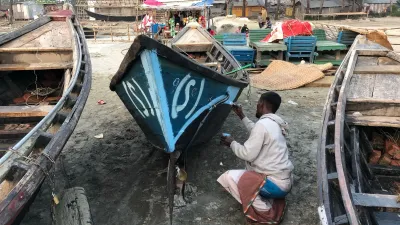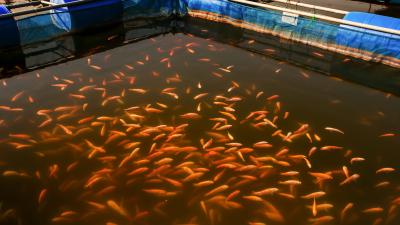
Supporting global communities in making sense of risk
A blog from Padmini Ravi, Project Manager – Risk Know-How, Sense about Science.
This page is approximately a 4 minute read
This page was published on

The recent report ‘Occupational health and safety (OSH) in the aquaculture industry – a global review’ commissioned by Lloyd’s Register Foundation revealed a real gap in the amount of transparent data available as well as a lack of granularity. The expansion of aquaculture over the last 30 years and its potential further growth makes this an increasingly important issue, but because aquaculture data is combined into the wider agribusiness sector data, it’s difficult to extrapolate and come up with definite findings. Aquaculture specific information needs to be singled out – and driven by regulation to gather more robust data and provide clarity to identify where the real risks exist.
Raising awareness of the issue
The industry and its supply chain need to realise the gravity of this situation. In the UK alone there have been several deaths related to aquaculture over recent years, some as a result of working in enclosed spaces, some because of fatal accidents and some because best practice procedures simply weren’t followed.
The supply chain will be vital in raising awareness globally and tends to be able to make things happen by lighting a fire underneath industry to make sure attention is paid to issues and definitive action is taken. If we look at social welfare and slave labour as an issue highlighted by the supply chain, it’s now being actively addressed and the situation is better than it was, although more still needs to be done.
Fishing vs aquaculture
Fishing is one of the most dangerous occupations in the world and the FAO is working to encourage action from stakeholders to address safety at sea and occupational health in fisheries, acknowledging that while there is a frame work for accident reporting by merchant fleets, this doesn’t exist for fishing vessels. It’s aware that without reliable data and information, ‘sea safety shortcomings cannot be identified with clarity and fishing safety strategies cannot be implemented effectively’. While data gathering in fishing certainly has its challenges, in many industrial fisheries there is a requirement to have an observer on board to check and record fishing activity. Could these observers also be trained to look at OH&S issues?
In theory it should be easier in aquaculture, at least in developed countries, because the industry is usually inshore with shore bases that could come under the remit of H&S officers with data reporting driven via regulation at a national level. Certification also plays a role – the Aquaculture Stewardship Council and Best Aquaculture Practice Standards for example do have some performance indicators to check that management systems are checking, reporting, reviewing and taking action relating to OSH but again, this is mainly in the developed world and as the report highlights, the high risk is in LMICs.
Ways forward
As an organisation with a global remit already looking at fishing, the FAO seems well placed to really drive awareness of issues in aquaculture, in the same way as they are with fishing. While regulation at a national level seems like a possible solution, it can be slow to happen, and will LMIC governments and regulators take this on board and put in place the necessary changes? In that developing world scenario, it can’t be just about regulation, so a mix of approaches is required, perhaps involving private or private/public initiatives to help the industry improve and put in place reporting systems that provide genuine clarity.
The report also highlights that there isn’t a single repository of OSH information in aquaculture –maybe the FAO is the sort of organisation that could take a lead in this given they report on fisheries & aquaculture product issues across supply chains. Or is there a specific organisation that looks at OSH globally that could potentially extend into aquaculture?
It’s clear something needs to be done. The focus on social welfare issues on board is absolutely the right thing to do, but it doesn’t look good if the seafood has come from a farm with no social welfare issues but a high incident of accidents. While the UN and other large organisations are looking at social welfare, this report shows they also need to look at OSH because if it’s not on the radar, there most certainly won’t be any action being taken to tackle the issue.